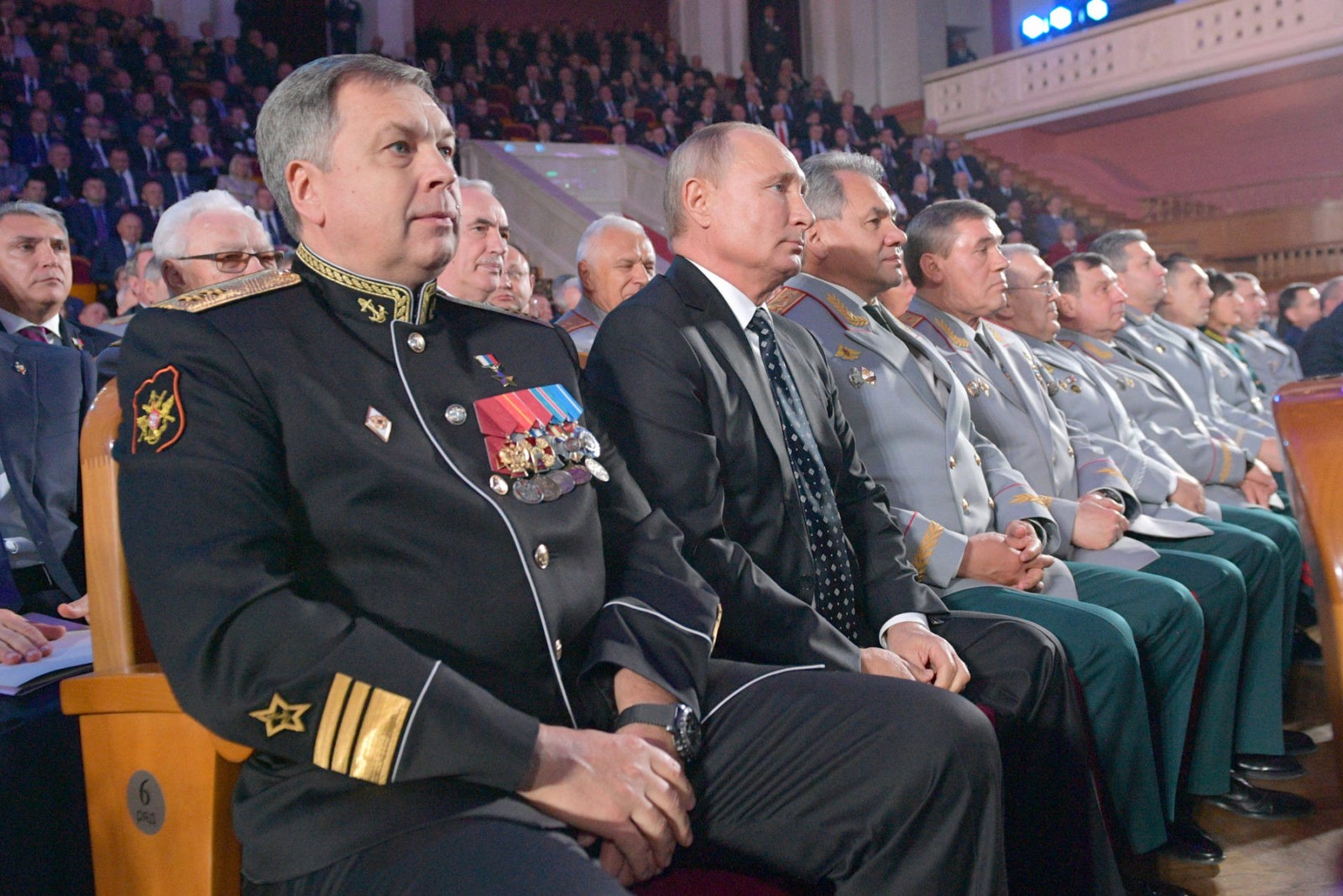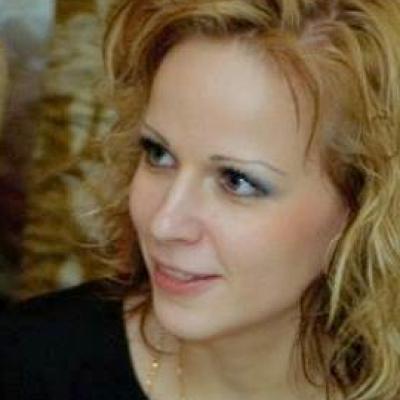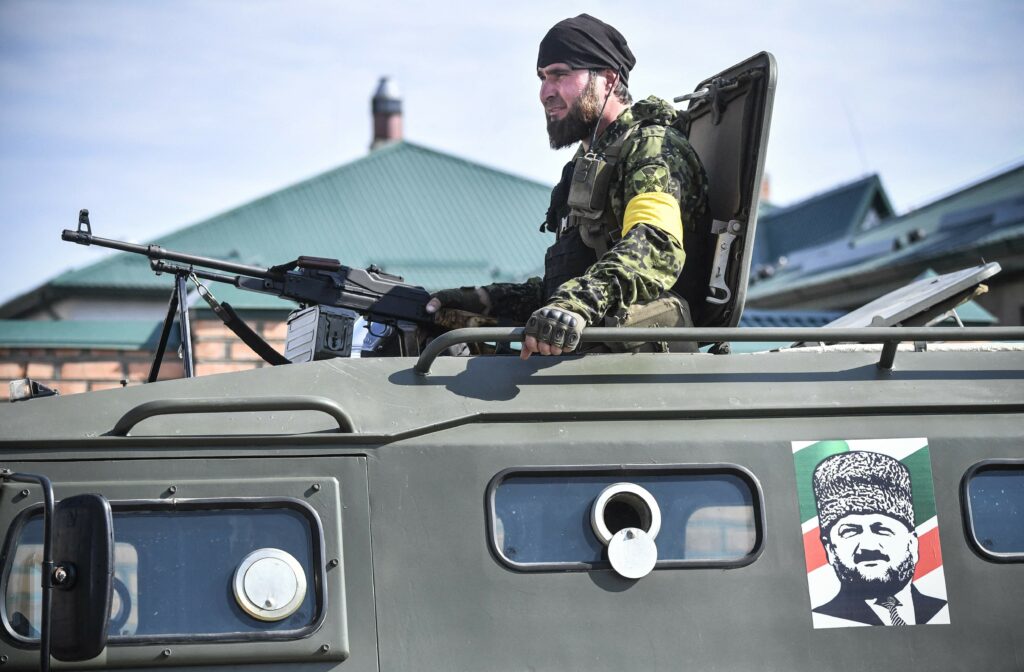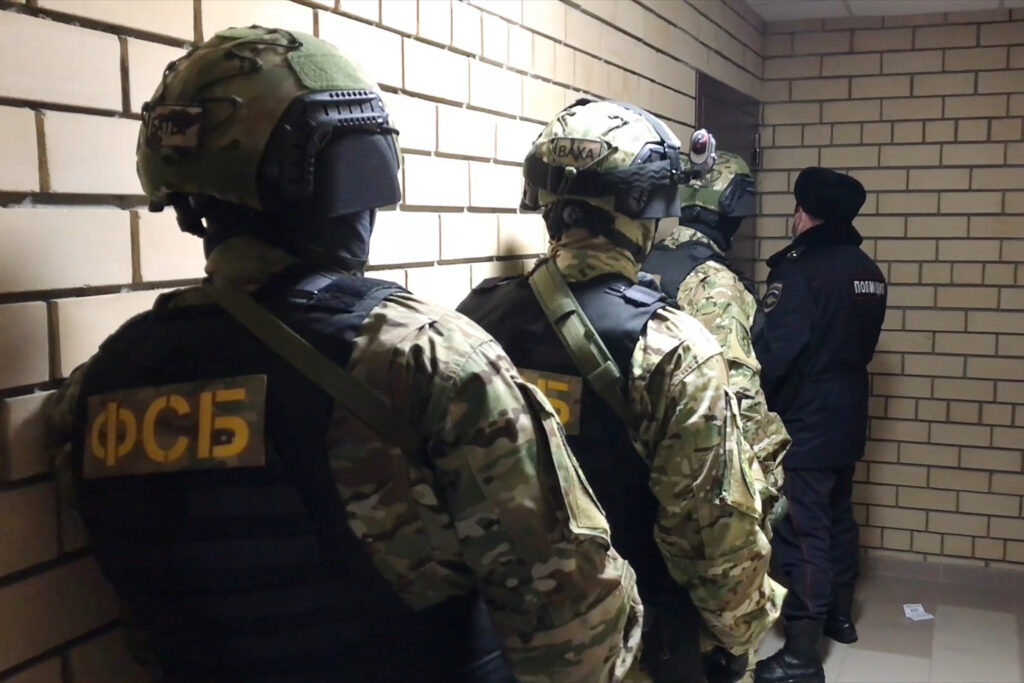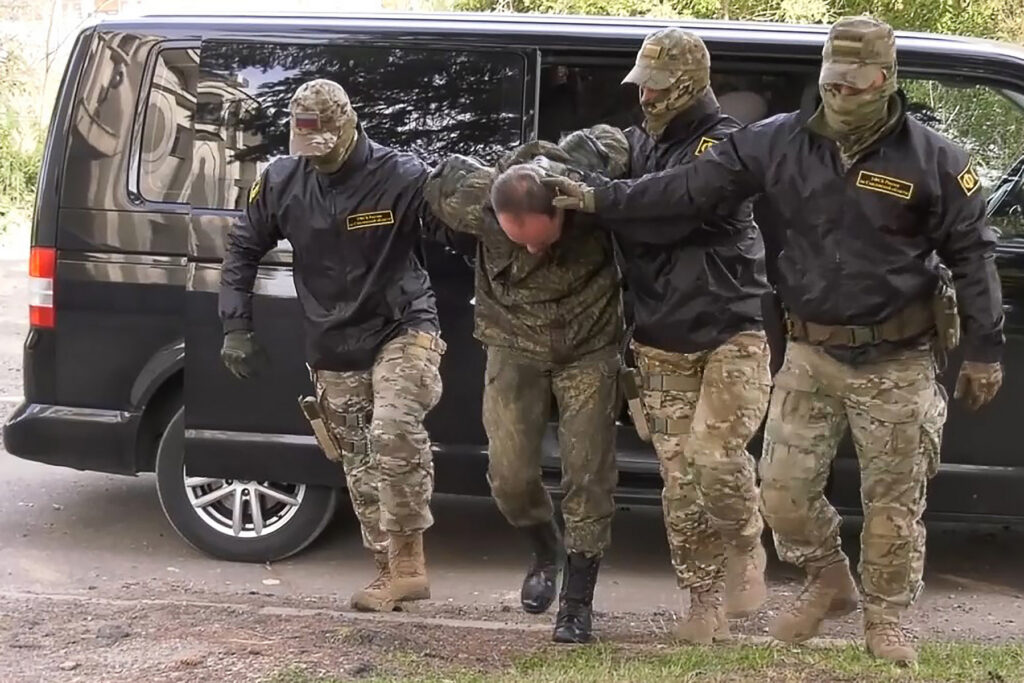On November 22 news emerged that Igor Korobov, head of the Main Directorate of the General Staff (the military intelligence service more commonly known as the GRU), had passed away after a prolonged illness. First deputy vice admiral Igor Kostyukov was appointed acting head of the service. Russian media, even referring to their own sources unanimously assert that Kostyukov will eventually become Korobov’s official successor. What awaits Russia’s foreign intelligence service after Korobov’s death, and what should be known about its new director?
Let’s start with a few important points. Firstly the GRU, much like any other secret service, is a conservative organisation which takes a dim view of any attempts at reform or significant reshuffles of personnel. Consequently, Korobov’s successor is a subordinate deemed close to his former boss, and one with a deep knowledge of military intelligence. Kostyukov served as deputy head of the GRU until the very last moment, and also stood in for Korobov when his illness got worse.
Kostyukov also supervised the GRU’s activities in Syria, an issue so important to Vladimir Putin that dealing with it suggests regular contact with the Russian president. In 2017 he was awarded the Hero of Russia medal. As such the main goal of the Russian authorities here appears to be guaranteeing the continuity and stability of the GRU’s work.
Biographical details about Kostyukov are scarce. He was born on February 21, 1961 in the Amur Region. A source close to the Ministry of Defence told RBK that upon graduating from the Military-Diplomatic Academy, Kostyukov served as a military attache and then worked for the GRU. The journalist Sergey Kanev wrote in a Facebook post that Kostyukov is the youngest of all serving generals, that he was previously resided in Italy, and that he now oversees the war in Syria. Kostyukov’s son Oleg once worked at the Russian Embassy in Italy. Kanev earlier suggested that another deputy director of the GRU, Sergey Gizunov from St Petersburg, was a contender to Korobov’s position.
RBK drew particular attention to the anti-American character of Kostyukov’s rhetoric. When Kostyukov spoke at the Sixth Moscow Conference on International Security in April 2018, he declared that Donald Trump’s administration seeks to obtain preferential treatment in political and economic affairs by force. Kostyukov went on to call the US Navy’s carrier strike groups and strategic bombers the main instruments of Washington’s foreign policy. However, it should be emphasised that in the current situation the entire Russian elite, and particularly its military and security officials, are anti-American and anti-western in general. In these circumstances, moderation is regarded with suspicion and seen as evidence of unreliability. Ivan Safronov, a special correspondent for Kommersant FM who was present at the conference, noted that Kostyukov spoke as a rapporteur about the balance of power in the Asia-Pacific Region and reported on the issue of North Korea. At the same time, Kostyukov gave a highly informative presentation on the situation in the Middle East and the circumstances of forces present there, with a particular focus on Iraq and Syria.
The second key point is that the GRU now operates under significant pressure after high-profile revelations about the outright failures of its previous work. Nevertheless, it’s important to note Putin’s personal reverence for intelligence officers; in his eyes, whatever mistakes or incompetence they may have shown, they are true heroes. Several observers have already suggested that the arrival of Kostyukov spells reform for the GRU, which may lead to its weakening. Alexander Kolpakidi, a historian of the Russian security services, said in an interview with Kommersant FM that the country’s military intelligence service might even lose some of its current functions: “Reshuffles, changes, and some reforms have probably even begun. I’m sure they’ll try to get rid of all the blunders and ensure they are not repeated in future. The fact that the GRU turned out to be involved in such scandals is surprising; in the Soviet period a competing security agency, now called the SVR but then known as the PSU, was known for them. I think it’s most likely that the GRU will stop dealing with these issues.”
Instead, it may be more logical to expect the opposite: a performative strengthening of the GRU, a move indirectly confirmed by Vladimir Putin’s proposal to restore its former name, the “Main Intelligence Directorate.” In this regard, the GRU has two major advantages. Firstly, it maintains its own operational combat units, which is important given that Russia is involved in a number of active conflicts. Secondly, the role of the Ministry of Defence has markedly increased. This is an important fact given the psychology of Putin, who prefers to entrust critically important jobs to those he strongly trusts. This means that the GRU is now under the patronage of Sergey Shoigu. The Minister of Defence is rightly called the most influential security official in Russia today, despite occasional rumours of the president’s displeasure with this or that mistake in his work. For Putin, Russia’s strategic military power is a critically important issue, and one in which the GRU’s scientific and technical intelligence plays a central role.
Thirdly, there’s no doubt that we should expect increased competition between the GRU and the SVR (the two agencies are traditional rivals.) Kommersant’s source in the General Staff said that Igor Kostyukov “would have to establish relations with his ‘parallel,” meaning the SVR, with which the GRU had clashed in recent years due to the difference in their working methods. In particular, the military believed that the SVR was primarily engaged in ‘desk intelligence work,’ while the GRU went out and unearthed real information using a wide network of agents and informers, thus playing a significant role in international relations. This leak to Kommersant neatly sums up the GRU’s point of view.
However, it is important to bear in mind the SVR’s approach. A number of media outlets wrote that the agency has tried to distance itself from the failures of the GRU, even dropping hints to western counterparts that it had not played a part in its competitor’s staggeringly incompetent escapades. For the SVR, the latest scandals are a blow not only to the “guys from the GRU,” but to all the country’s intelligence agencies. But it will not be easy to encourage Putin to take concrete political decisions to resolve the problem, whether structural reforms or personnel changes. The SVR today is led by Sergey Naryshkin, a “technocrat” who came to the position in 2016. Naryshkin’s new role was less an “appointment” in the full sense of the word but rather compensation for his losing the post of Speaker of the Duma. His current political influence cannot be compared with Shoigu’s. Therefore, even if the Kremlin does pay attention to the SVR’s moaning, it is far more likely to work with the GRU on mending its ways than to reallocate influence to the SVR’s benefit. Nonetheless, the SVR does have one advantage: the head of the agency is a political appointee unlike the head of the GRU, so enjoys direct contact with the president.
While Kostyukov’s appointment should not be seen as a catalyst for wider personnel or structural changes in the GRU, it will mark a trend towards reducing the vulnerability of the military intelligence service, fixing errors, and improving its overall efficiency. At the same time Kostyukov, much like anybody else appointed as head of the GRU, will focus on stabilising the agency’s influence in order to strengthen its position among Russia’s defence and security establishment. Even if Putin decides in favour of significant structural changes to the country’s security agencies (which has been expected for a long time), military intelligence will continue to occupy a central place in whatever balance of power emerges. There is no point in waiting for its influence to abate.
